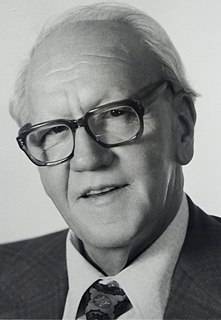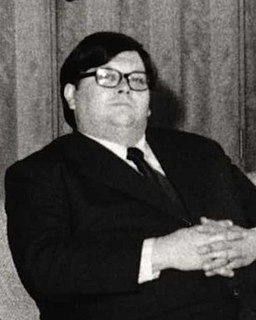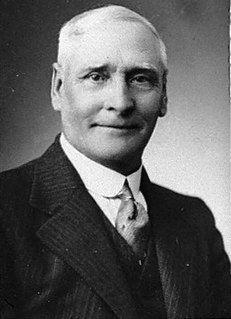Related Research Articles

Michael Kenneth Moore was a New Zealand politician, union organiser, and author. In the Fourth Labour Government he served in several portfolios including minister of Foreign Affairs, and was the 34th prime minister of New Zealand for 59 days before the 1990 general election elected a new parliament. Following Labour's defeat in that election, Moore served as Leader of the Opposition until the 1993 election, after which Helen Clark successfully challenged him for the Labour Party leadership.

James Patrick Anderton was a New Zealand politician who led a succession of left-wing parties after leaving the Labour Party in 1989.

Richard John Northey is a New Zealand politician. He was an MP from 1984 to 1990, and again from 1993 to 1996. He served on the Auckland Council between 2010 and 2013, and is a member of the Labour Party.
The Northern Maori by-election of 1980 was a by-election for the Northern Maori electorate during the 39th New Zealand Parliament. It was prompted by the resignation of Matiu Rata, a former member of the Labour Party who was establishing a new group, Mana Motuhake. Rata believed that contesting a by-election would give him a mandate for his change of allegiance. In the end, however, his plan backfired when the seat was won by Bruce Gregory, his replacement as the Labour Party candidate.
The Onehunga by-election of 1980 was a by-election for the Onehunga electorate during the 39th New Zealand Parliament. It was prompted by the death of Frank Rogers, a Labour Party MP. It was held on 7 June 1980 and was won by Fred Gerbic, also of the Labour Party.

The 1926 Eden by-election was a by-election for the Eden electorate during the 22nd New Zealand Parliament. The seat became vacant after the appointment of the sitting member, James Parr of the Reform Party as High Commissioner to London. Parr resigned on 26 March. Labour won the by-election and became the official opposition in Parliament.
Frederick Miroslav Gerbic was a New Zealand politician of the Labour Party.
Frank Lewis Rogers was a New Zealand politician of the Labour Party.

Norman Vazey Douglas was a New Zealand trade unionist and left-wing politician. He joined the New Zealand Labour Party in 1932, but when John A. Lee was expelled from the party in 1940, Douglas followed to join the new Democratic Labour Party. He rejoined the Labour Party in 1952 and represented the Auckland Central electorate in Parliament from 1960 until his retirement in 1975, serving time on the Opposition front bench.

Colin James Moyle is a former politician of the New Zealand Labour Party who served as a Member of Parliament (MP) from 1963 to 1976 and again from 1981 to 1990. He was a Government minister in the Third Labour and Fourth Labour Governments. He was a close confidante of Bill Rowling during Rowling's short premiership. In the Fourth Labour Government, as Minister of Agriculture, Moyle oversaw the removal of farming subsidies and the establishment of a fisheries quota system.
Susanne Mary Wood served as the president of the New Zealand National Party from 1982 to 1986, the youngest person and the first woman to hold the post.
Reginald George Boorman was a New Zealand politician of the Labour Party.

Dorothy Catherine Jelicich was a New Zealand politician of the Labour Party. She served one term in the House of Representatives representing the Hamilton West electorate, and was afterwards a city councillor in Hamilton and then Manukau.

Princes Street Labour is a branch of the New Zealand Labour Party in Auckland.

Alfred James (Fred) Murdoch was a New Zealand politician, first as an Independent Liberal then of the United Party, and from 1943 the National Party. He was Minister of Agriculture and Minister of Mines from 1930 to 1931 in the United Government of New Zealand.

The Mangere by-election of 1977 was a by-election for the electorate of Mangere on 26 March 1977 during the 38th New Zealand Parliament. The by-election resulted from the resignation of the previous member Colin Moyle after accusations against him in parliament, and he was replaced by David Lange, also of the Labour Party. Apart from Lange, there were seven other candidates in the by-election.
The Otahuhu by-election 1963 was a by-election held in the Otahuhu electorate in Auckland during the term of the 33rd New Zealand Parliament, on 16 March 1963.

The Onehunga by-election 1953 was a by-election held in the Onehunga electorate in Auckland during the term of the 30th New Zealand Parliament, on 19 December 1953. The by-election was won by Hugh Watt of the Labour Party.

The Raglan by-election of 1927 was a by-election held in the Raglan electorate during the 22nd New Zealand Parliament, on 29 September 1927. It was caused by the death of incumbent MP Richard Bollard of the Reform Party. Despite being a local contest it quickly became a national contest in miniature due to growing discontent with the Reform Government.
The Backbone club was a ginger group within the New Zealand Labour Party in the late 1980s and early 1990s that advocated neoliberal economic policies and supported Roger Douglas in his financial reforms of New Zealand. Its members later became the nucleus of ACT New Zealand, a neoliberal party which Douglas founded in 1994.
References
- Bassett, Michael (2008). Working with David: Inside the Lange Cabinet. Auckland: Hodder Moa. ISBN 978-1-86971-094-1.
- Wilson, James Oakley (1985) [First ed. published 1913]. New Zealand Parliamentary Record, 1840–1984 (4th ed.). Wellington: V.R. Ward, Govt. Printer. OCLC 154283103.